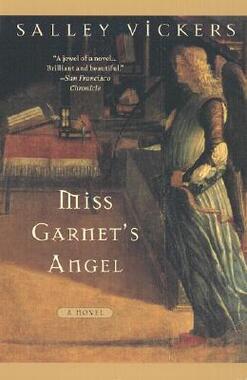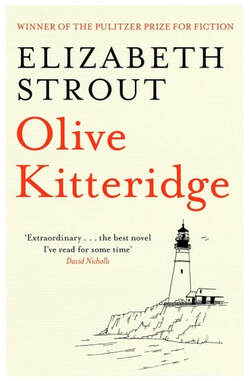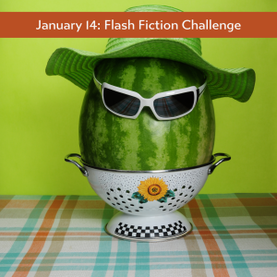Miss Garnet’s Angel by Salley Vickers
She falls in love, sadly with a man who can’t return her affection, but doesn’t let the disappointment blunt her enjoyment of the city of canals. She makes more friends than she’s had in her lifetime, and realises she could have had more in England had she been more forgiving of others’ limitations and mindful of her own.
A sculpture on one of the churches sparks Julia’s curiosity about the story behind the boy, the angel, the dog and the fish. This pertains to the Book of Tobit, from ancient Jewish literature, which the author relates in another strand of the novel. While I found this interesting, the switch back and forth between entirely different cultures didn’t work so well for me.
Rereading this novel, first published in 2000, I was struck by thematic similarities with The Other Side of You: both address a kind of healing through Italian art. Miss Garnet’s Angel even features a fictional therapist, albeit offstage. Her inclusion – although unnamed, this therapist is gendered – comes across as authorial soapboxing, however, and weakens the plot. (POTENTIAL SPOILER: a new young friend confesses to being sexually abused by her father, but another character reveals that this was a false memory encouraged by a rogue therapist. False memory ‘syndrome’ was a genuine concern around the time this novel would have been written, deeply distressing to wrongly-accused parents, but its treatment in this novel – with the family deemed innocent and the therapist immediately demonised – is far too glib.)
The root of Julia’s defensiveness is also thinly sketched, although we learn that her mother died when she was a child and her father did abuse her subsequently (mostly nonsexual although he touched her breasts on one reported occasion). I wondered about her ability to create a home among strangers versus her inability to do so in her own country, as a reflection of, and perhaps reparation for, her leaving (her father’s abusive) home for university at eighteen. For those who are insecurely attached, like Steve in my novel, Underneath, it’s easier to feel at home where you don’t conventionally belong.
Olive Kitteridge by Elizabeth Strout
She’s a big woman with a big character encompassing contradictions, as many of us do. Unforgiving, vindictive, she doesn’t suffer fools gladly and sees no reason to hold back her opinions to avoid causing offence. On the other hand, she is unusually perceptive and sympathetic to others who are struggling, including a young man on the verge of suicide and a young woman with anorexia.
Olive has been a good teacher, if a somewhat scary one, but she’s confident she’s been a loving mother and wife. But, as the narrative develops, the evidence mounts against her, in particular regarding her treatment of her son. Widowed in her early 70s, will Olive manage to recognise, and learn from, her mistakes?
Winner of the 2009 Pulitzer Prize for Fiction, Olive Kitteridge is an enchanting story of heart attacks and heartbreaks, of ageing and the complexities of ordinary human relationships. It shares some psychological themes with My Name Is Lucy Barton, which I reviewed when it came out in 2016.
My own novel, Sugar and Snails, is also about a teacher (university, rather than school) who hides her insecurities under a prickly facade. Until the end of February, you can read it for free via my newsletter. Click on the image to reserve your copy.
“Trust me,” said Geraldine, as we un-noosed our school ties in the station toilets, “Trust me,” as we tottered to the train in miniskirts and high heels. When I blinked, mascara clogged my eyelashes. My waxy lips left prints on the bottle, as I swigged lemonade.
We’d dressed up as kids, for second-rate Shakespeare. I’d scoured my sister’s wardrobe behind a locked bedroom door. But this was serious. Public. If my dad got wind of it, I was dead.
For one weekend, I’d play glamour girl. Later, when my mother found the tell-tale Polaroids, I faced the consequences alone.


























 RSS Feed
RSS Feed





















